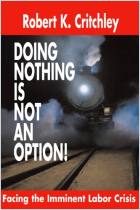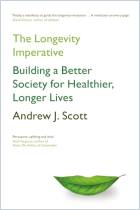Únase a getAbstract para acceder al resumen.

Únase a getAbstract para acceder al resumen.
Linda Marsa
Retiring Retirement
A Growing Portion of the Elderly Look and Act Anything But
Nautilus, 2016
¿De qué se trata?
Retirement at age 65 no longer makes sense for workers, the economy or progressive employers.
Recommendation
The US government set the age of eligibility for the national pension program at 65 in 1935, when health and life expectancies were drastically different from today. Writer Linda Marsa, herself over age 65, reveals why retirement is a persistent but outdated concept. Data show that many older adults are willing and able to continue working and that the economy will need them to do so. Progressive companies are starting to adapt the workplace to accommodate them and profiting from it. getAbstract recommends this article to mature workers and those in a position to hire them.
Summary
About the Author
Linda Marsa is a contributing editor at Discover magazine and author of Fevered: How a Hotter Planet Will Harm Our Health.

















Comment on this summary